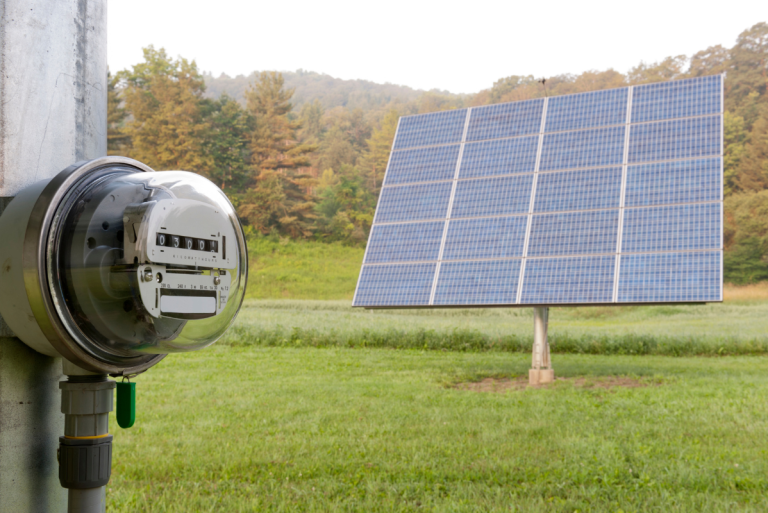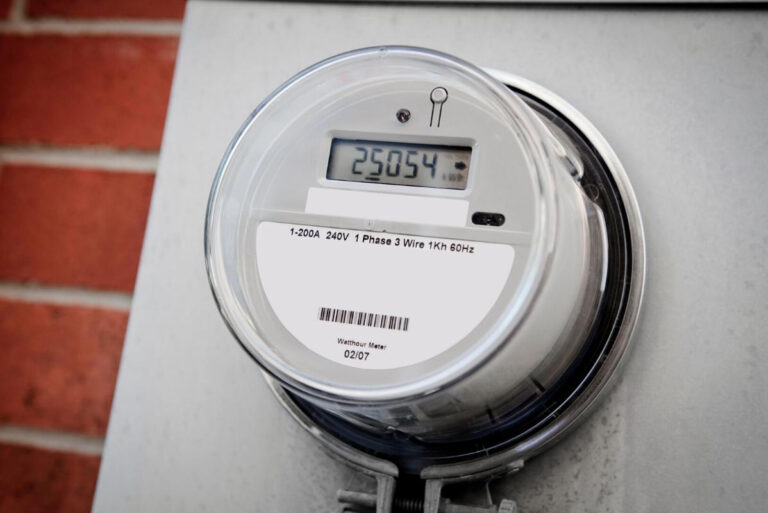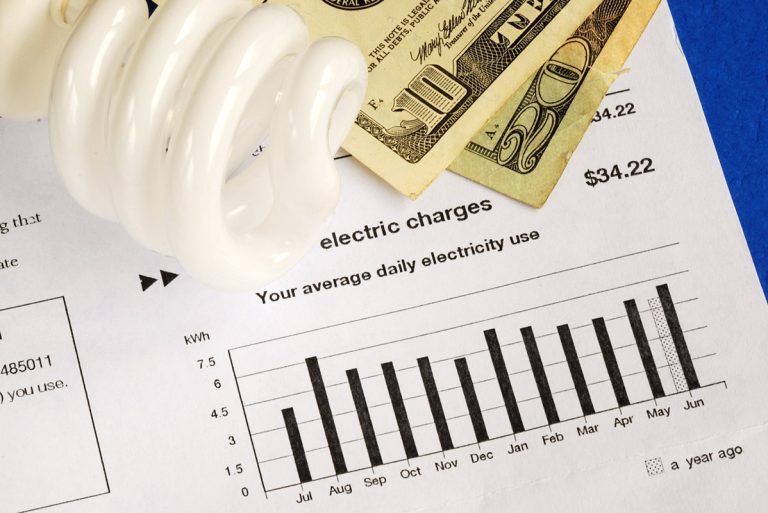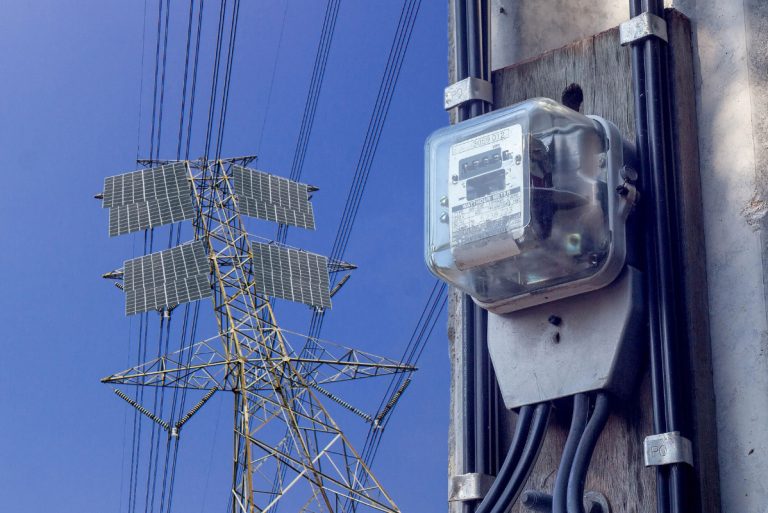When you are looking for a new lawnmower, chances are that you’ll come across two different types: electric vs gas lawn mowers. But which is the better choice?
Both are good options, but each has its own set of pros and cons.
In this blog post we will compare these two options in detail so that when it’s time for you to make a decision about what type of mower to buy, you’ve got all the information you need!
Electric vs gas lawn mower: key differences
When it comes to choosing between a gas and an electric lawnmower, you need to have the facts at your disposal to make an educated decision.
To help out, we’ve broken down the key difference between electric and gas lawn mowers, so you can be clear on the pros and cons of each.
1. Both lawn mowers require a different power source
Let’s start with the most obvious difference, electric and gas lawnmowers use different power sources. Electric power lawnmowers are powered by electricity, whereas gas mowers require gasoline.
Gas has its own drawbacks, such as being environmentally damaging, hard to transport and store. Electric power is much better for the environment than gas.
Electricity is cleaner energy which means electric lawnmowers are environmentally friendly when compared with their gas-powered counterparts. Electric mowers don’t emit harmful greenhouse gases or pollute groundwater like gasoline does when it’s burned.
However, using electricity means you either need a mower with an internal battery, which will need to be charged, or you’ll need to connect your mower to the mains supply.

There are some great cordless models out there with Lithium-ion batteries which give good run times without sacrificing performance.
Trailing a mains cable behind a cutting machine has its own associated dangers, so look for models with a reinforced or retractable cable and a power cut-out.
If you’re somewhere without consistent access to electricity or have a larger volume of grass to cut, you might want to choose a gas-powered mower to avoid issues with cabling or batteries running out before the task is done.
2. Electric lawnmowers can be more fragile than gas
Modern internal combustion engines, like the ones that power gas mowers, are pretty robust. Most electrical components are less robust, which means you’re more likely to have problems with an electric lawnmower if you’re regularly mowing large areas of brought terrain or grass with a lot of rocks in it.
On the other hand, electric motors, batteries and control boards are all available as components for electric mowers so should be easy enough to fix or replace if something fails and they do require less maintenance than gas motors.
3. Gas lawn mowers are often more powerful
Electric motors have come a long way in the last decade, but sometimes you just need the grunt of a gas motor for tough jobs.
Electric motors are ideal for small to medium-sized lawns, whereas gas mowers with larger engines and more robust components can be a better bet if you have large areas of tough grass or want the extra power to help with tougher jobs, such as cutting through long grass.
4. Gas lawn mowers require more maintenance than electric
An internal combustion engine runs off a series of tiny explosions, which means there’s some serious wear and tear on the components of the motor. You’ll need to make sure oil levels are kept up to ensure it doesn’t seize and replace components if they wear out, like spark plugs.
Electric motors, on the other hand, are powered by a rechargeable battery that requires comparatively little maintenance or service over time. Electric lawn mowers also start at the push of a button, while gas mowers can be difficult to get started on cold days.
5. Electric lawnmowers are better for the environment
When it comes to environmental friendliness, electric lawnmowers win hands down.
Electric lawnmowers are powered by a rechargeable battery, so there’s no air pollution from the gas emissions that come with their gasoline-powered counterparts.
Internal combustion motor emissions include carbon dioxide (CO), nitrogen oxide (NOx), and non-methane hydrocarbons (NMHC).
These pollutants may contribute to respiratory disorders or exacerbate existing diseases such as asthma or bronchitis.
Gasoline lawn mower emissions also contain chemicals like benzene which is linked to cancer and toluene which can damage the brain and central nervous system.
Electric lawnmowers don’t produce any of these harmful pollutants, making them a healthier choice for your yard as well as your family’s health.
Electricity may be generated through different methods such as solar or wind power that do not emit greenhouse gases as gasoline-powered mowers do.
Electric motor emissions are also considered to cause less pollution than those from gasoline engines since electric motors have fewer moving parts and require no oil changes or tune-ups.
6. Electric lawnmowers are cheaper to run
Electricity can be generated from a range of cheap, environmentally friendly options that aren’t linked to the finite stores of fossil fuel.
This means that electric mowers are cheaper to run because they don’t require expensive gasoline and require less maintenance, while gas-powered ones need oil changes and tune-ups which increases their cost.
If you purchase an electric lawnmower with a high-efficiency battery, it can also be recharged using renewable energy sources like solar panels, which further reduces the cost of running your mower.
Because of the relatively low power demands of modern electric motors and the infrequent use most lawnmowers see, a basic solar setup is usually more than enough to keep your mower charged and raring to go.
The cost to run an electric lawn mower varies based on where you live and how much electricity costs there, but using an online power consumption calculator it’s easy to determine just how inexpensive running one really is.
7. Electric lawnmowers are quieter than gas
Gas engines are loud, particularly larger ones, and the sound of a lawnmower in your backyard can be extremely disruptive, especially if you’re mowing early in the morning.
Electric lawnmowers are typically much quieter than their gas counterparts, which can be of real benefit if you happen to be living in a close urban neighborhood and don’t want to upset your neighbors.
8. Electric lawnmowers aren’t suitable for wet lawns
One of the major downsides to electric lawn mowers is that they aren’t suitable for wet lawns.
Electric lawnmowers are usually only suitable for dry grass, this is because of the inherent danger of using something powered by electricity in a wet environment.
If you wish to utilize an electric lawnmower, you should never cut your grass when it’s wet. The old saying that water and electricity never mix is one to bear in mind.

Source: Wikimedia / Hedwig Storch
If you have a wet lawn, then it’s probably best to invest in a gas-powered mower or some other type of cutters if you want your yard looking good on the weekends.
This is particularly true if you live in a state with particularly high levels of rainfall during the summer. Electric lawnmowers are at their most useful in drier climates.
Outside of the obvious electrocution risk, in drier areas, you’re less likely to have wet grass clumping up on your blades and making it harder for them to cut through properly, which can massively increase the drain on the battery.
9. Gas lawn mowers are usually more expensive
When it comes to price, gas lawn mowers are usually more expensive than their electric counterparts. This is because of the cost of producing the engine, as well as potential maintenance costs.
Electric lawnmowers are much easier to maintain because you don’t have to worry about spark plugs or any other complex mechanism that could require servicing down the line.
Electric mowers are both cheaper to buy and cheaper in the long run.
Electric vs gas lawn mower: choosing the right one for you
The more you know about something, the greater chance you have of making a good decision. Electric vs gas lawn mowers are no exception.
Armed with the information is the quick breakdown of the key differences between electric and gas lawn mowers, you can accurately assess which one is going to work best for your circumstance and get the best mower for your needs!












